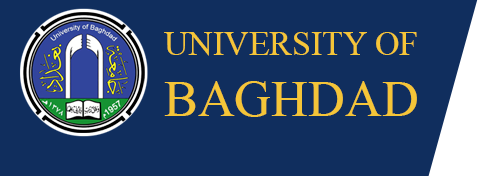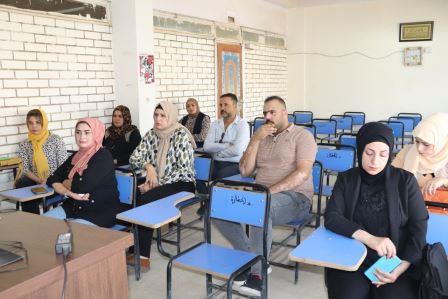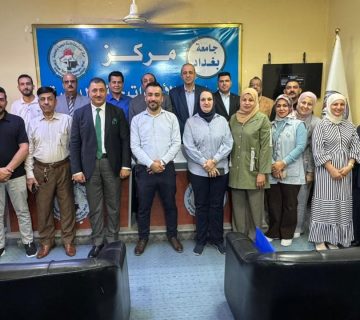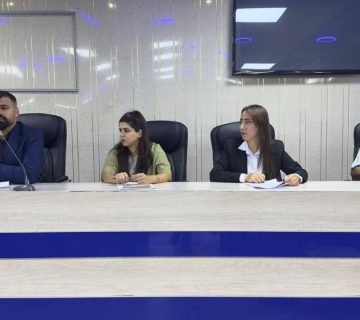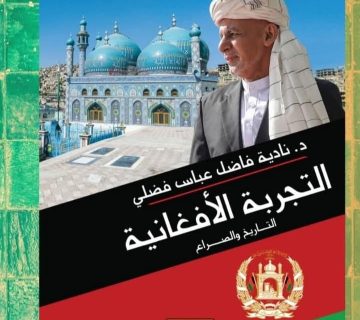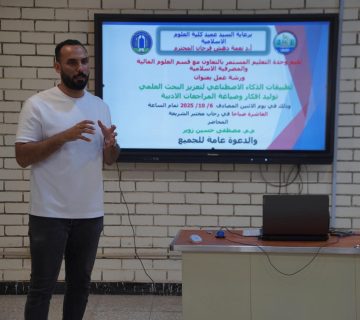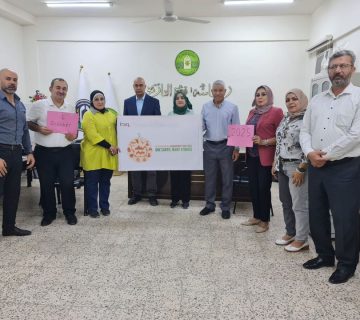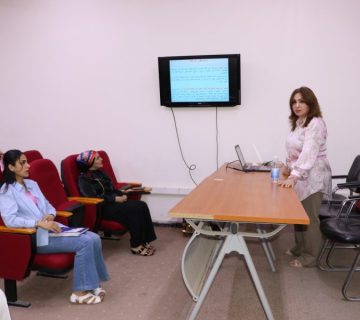The Department of Islamic Civilization at the College of Islamic Sciences, University of Baghdad, in collaboration with the Scientific Affairs Unit, organized a symposium titled “The Ruling on the Use of Genetic Fingerprinting in Lineage” at the Cultural Activities Hall. The event aimed to elucidate the importance of genetic fingerprinting as conclusive sensory scientific evidence based on analysis and observation. It greatly contributes to revealing the truth; thus, it is inherently permissible in Islamic jurisprudence to benefit from it in affirming rights and establishing justice.
The researcher pointed out the religious ruling on genetic fingerprinting, affirming its permissibility when establishing lineage requires proof. Scholars have sanctioned the reliance on genetic fingerprinting to prove cases of disputes over unknown lineage. This applies whether the dispute arises due to the lack of evidence, equal evidence, or participation in suspicion, among other scenarios.
The researcher emphasized the applicability of genetic fingerprinting in cases of suspicion regarding newborns in hospitals, childcare centers, and similar situations. It is also relevant in cases of suspicion regarding test-tube babies, as well as instances of lost or mixed-up children due to accidents, disasters, or wars. This is particularly crucial when the identities of parents are unknown, when there are unidentified bodies, or when verifying the identities of war prisoners and the missing. Furthermore, the researcher highlighted the improved utility of genetic fingerprinting before fulfilling the husband’s desire, this underscores the potential of genetic fingerprinting to serve as a convincing factor in matters of lineage and legal disputes.
The symposium concluded with a recommendation asserting that it does not perceive any religious impediment to benefiting from genetic fingerprinting in proving the lineage of the unknown. This is because genetic fingerprinting, or rather, rises to the level of conclusive evidence acknowledged by the majority of jurists.
